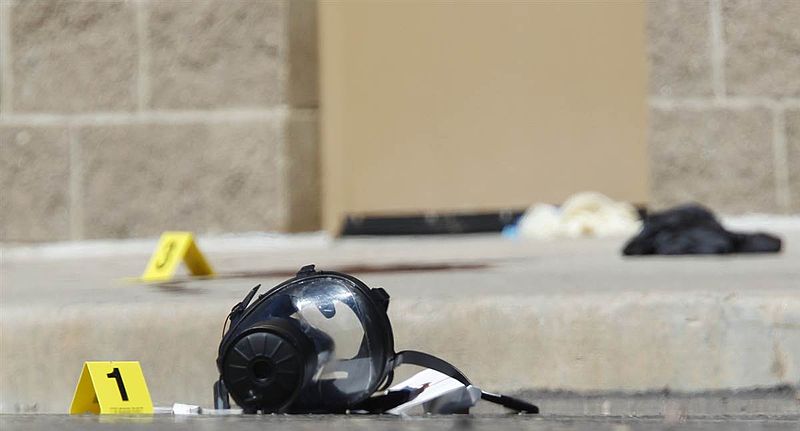Colorado Theatre
 I was young at the time, but when the Twin Towers came crashing, and President Bush spoke atop the heap of rubble waving the American flag, we all felt like Americans. We were united when we stormed into Afghanistan and overthrew the Taliban. And every year on September 11, we pause and remember.
I was young at the time, but when the Twin Towers came crashing, and President Bush spoke atop the heap of rubble waving the American flag, we all felt like Americans. We were united when we stormed into Afghanistan and overthrew the Taliban. And every year on September 11, we pause and remember.
This past weekend a young man turned a movie theatre into a slaughterhouse. I woke up to the headlines, stunned that as I had arrived home from my own midnight viewing of the Batman movie, hundreds of others were in living hell. I checked the big three news outlets (FoxNews, MSNBC, and CNN). All covered the same story. No partisan politics, just the sheer tragedy. President Obama turned his early morning campaign rally into a somber memorial. Governor Romney took a day off as well. Politics halted. Right now, Rush Limbaugh’s echo chamber and MSNBC's talking heads are eerily quiet, and America is again united in mourning.
For the weekend.
Really, the past three “nonpolitical” days have been the most political. Both Obama and Romney had to pass a litmus test. Was the president empathetic enough? Did he unify the country? Did Romney show his deference to the President, recognizing he is not yet the commander in chief? Did they exploit the tragedy for political purpose? The president and the governor performed an elegant ballet over the weekend, and the beauty of it is nobody knew it was going on at all.
These politicians most likely really feel bad and actually want to mourn. I’m not claiming anyone here is heartless. But in a week the Democrats will be back to yelling at the Republicans and the Republicans will be sniffing out the president’s blood.
Shootings today are so commonplace, that they’ve developed their own formula. Shock. Mourning. Unification. Analysis. Blame. Normalcy. Wash, rinse, and repeat. Twelve people were savagely murdered in Colorado, a baby was shot point blank in the head, the killer set up trip wires in his apartment to blow up responding police officers, and yet it doesn’t really mean anything. The media response was theatre, a show put on for a few days, with real emotion, but no substance.
In 1994, a shooting in Colorado sparked a slew of gun legislation. After Columbine, many states passed gun control laws. When 33 people died at Virginia Tech, legislation requiring more extensive background checks was put in place. And when a congresswoman from Arizona nearly died holding a public town hall meeting, not a thing was done. No one knows what will happen in the aftermath of the Colorado shooting, but based on current trends, and the increasing frequency of mass shootings in the last twenty years, my bet is on the “kind words and get back to bashing” route.
Gun control laws might not be the answer. Increased monitoring might be too invasive. I don’t know. But I do know that these conversations must at least take place. Politicians should not be able to get away with somber remarks in the name of “unity” without any follow-up action — or even talk. Both the victims of the shooting and the American people deserve better. We should not have to accept the “reality” of shootings as commonplace. Nor should we any longer exploit tragedies for a sense of “unity”. There is no real unity. There is a perspective realignment but it would be a disservice to the word to label such a brief moment “unity."
Tragedies are important because they catch us off guard. They are not common. There should be no set “response” formula. And they do spark action precisely because no one wants to repeat them.
Maybe I’m being unfair. Maybe I shouldn’t be criticizing politicians or the media because maybe mass shootings are no longer tragedies. But I don’t think we want to admit that (mostly because of what it says about us). If that’s the case, however, then let’s stop pretending. If dead babies and mastermind gunmen no longer elicit action, change, or even a good long look in the mirror, then President Obama and Governor Romney should just tear up the solemn speech, and get on with the Bain bashing and tax warfare charges. The façade doesn’t help the dead, their families, or the recovering victims who see their fifteen minutes no longer mean much to people beyond self-indulgent “unity.”

